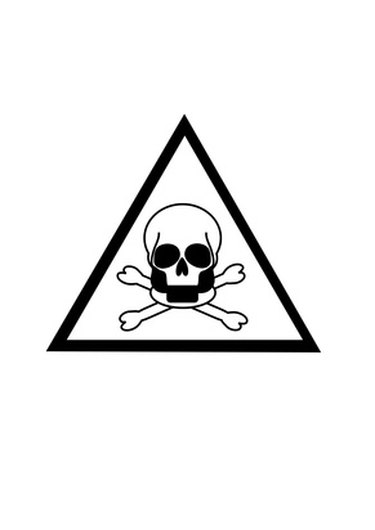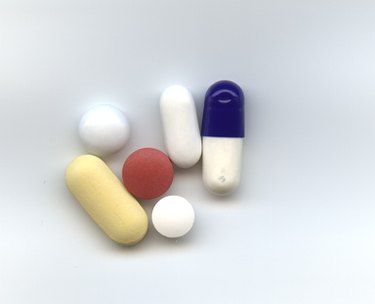
Arnica cream, or arnica montana cream, is a homeopathic medicine obtained from the arnica plant. Arnica extracts, obtained from the fresh or dried flower of the plant, have been used since the 1500s as a treatment for various muscle issues, including sprains, muscle aches, rheumatic pain, inflammation caused by fractures and insect bites, as well as to treat bruises and heal wounds. However, arnica must be used with caution as serious side effects can occur.
Effects on the Skin
Video of the Day

Arnica cream is typically applied directly to the skin to treat the affected muscle. While generally safe, arnica cream used for prolonged periods can cause skin irritations including eczema, peeling or blisters. In addition, allergic reactions to the arnica plant components are possible, which can cause contact dermatitis. The Nutritional Supplements Health Guide also reported cases of mouth ulcers caused by arnica-containing mouthwash.
Video of the Day
Side Effects When Ingested

Taken internally, arnica extracts are extremely toxic. Side effects include dizziness, tremors, irritation of mucous membranes, muscle weakness, an increase risk of bleeding, vomiting and heart irregularities. It can also cause stomach discomfort and nausea, damage to the liver and kidneys and organ failure.
Arnica creams contain very small amounts of arnica and therefore do not usually exhibit such side effects. However, if used on an open wound, Arnica can enter the bloodstream, causing the same effects as when taken internally. Large doses of arnica taken internally can be fatal.
Pregnancy and Breastfeeding Risks

Arnica is not recommended for use during pregnancy. Side effects in people who are pregnant include stimulation of the uterus, which could lead to spontaneous miscarriage or premature delivery. These mostly result from ingestion, but could also be caused by the cream, if used on an open wound.
Arnica can be passed into breast milk. Because there are no known studies about the side effects of arnica on young children or infants, it is not recommended for use by people who nurse, even as a cream.
Drug Interactions

Arnica slows the process of blood coagulation. Therefore, if taken with other anticoagulants or antiplatelet drugs, such as Warfarin, Hepadrin, Plavix or Coumadin, arnica can cause increased bleeding. In addition to prescription medications, arnica can also interact with over-the-counter pain relievers and herbal remedies that affect blood coagulation, including aspirin, ibuprofen, naproxen sodium, garlic or gingko biloba.
Arnica can also reduce the effectiveness of corticosteroids, as well as drugs that treat high blood pressure or diabetes.
Is this an emergency? If you are experiencing serious medical symptoms, please see the National Library of Medicine’s list of signs you need emergency medical attention or call 911.